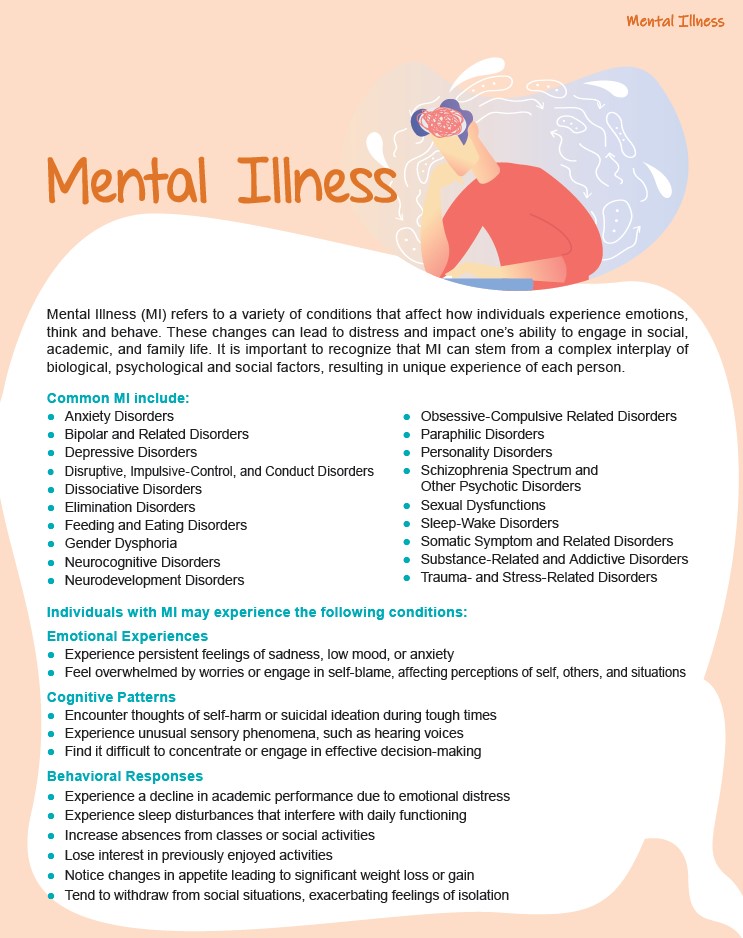Mental Illness

According to World Health Organization (WHO), mental health is defined as a state of well-being in which every individual realizes his or her own potential, can cope with the normal stresses of life, can work productively and fruitfully, and is able to make a contribution to her or his community. Students suffering from mental illness may find a diminishing capacity to cope with normal daily functioning including interpersonal, emotional, academic and physical aspects. The illnesses may cause by various biological, psychological and social factors with different manifestations. Common mental illnesses are listed below. It is important to note the signs and symptoms of different disorders in order to have proper treatment and intervention.
- Anxiety Disorders
- Bipolar Disorder (Manic-Depressive Illness)
- Borderline Personality Disorder
- Depression
- Eating Disorders
- Generalized Anxiety Disorder
- Obsessive-Compulsive Disorder (OCD)
- Panic Disorder
- Post-Traumatic Stress Disorder (PTSD)
- Schizophrenia
- Social Phobia (Social Anxiety Disorder)
Some common symptoms that deserve special attention from you:
- Emotional Symptoms
- Feeling sad, depressed or lowish
- Loss of interests or enjoyment
- Feeling guilty, helpless and/or hopeless
- Feeling nervous, irritable or anxious
Cognitive Symptoms:
- Difficult to concentrate
- Difficult to make decisions
- Deteriorated memory
- Excessive self-blame
- Thinking about death or suicide; attempting suicide
Physical Symptoms:
- Feeling tired, having low energy level
- Sleep disturbance
- Decrease or increase in appetite
- Unusual weight loss or weight gain
- Decrease in sexual urge
Behavioral Symptoms:
- Becoming withdrawn socially; avoiding social interactions
- Becoming slow in movements
- Losing interest in maintaining personal hygiene or grooming
- Decrease in the abilities to function in their academic, occupational, interpersonal or other major life domains
Get to know more
Mental Health Leaflet (click the below to enlarge)

Most classrooms, lecture theatres and laboratories at HKUST are accessible by students with SEN.








